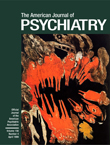Kandel’s Challenge to Psychoanalysts
To the Editor: In “A New Intellectual Framework for Psychiatry,” Eric R. Kandel, M.D., proposes a framework “that derives from current biological thinking about the relationship of mind to brain.” He notes that “academic psychiatry transiently abandoned its roots in biology and experimental medicine and evolved into a psychoanalytically based and socially oriented discipline that was surprisingly unconcerned with the brain as an organ of mental activity,” and he urges “a renewed involvement of psychiatry with biology and with neurology.”
He cautions, however, that “it would be unfortunate, even tragic, if the rich insights that have come from psychoanalysis were to be lost in the rapprochement between psychiatry and the biological sciences” and calls for psychoanalysis to be “embedded in the sciences of human cognition,” where its ideas “can be tested.”
There is doubt, however, as to whether the loss of psychoanalysis would be tragic for academic psychiatry. Kraepelin, arguably the founder of modern psychiatry, characterized the ideas of psychoanalysis as “castles in the air,” far removed from the “sober method of clinical observation” (1). By contrast, his goal, whenever confronted with a disorder, was patient investigation aimed at discovering “the seat and extent of the morbid changes (in the brain) that have caused it” (2).
If academic psychiatry wishes to reestablish its roots with biology, it could do no better than look to the scientific foundations laid by Kraepelin. Psychoanalysis, for all its richness, rather than being protectively held on to, should be kept at a skeptical arm’s length unless and until its ideas have passed the test of sober scientific inquiry.
1. Kraepelin E: Dementia Praecox and Paraphrenia. Huntington, NY, Robert E Krieger Publishing, 1971Google Scholar
2. Kraepelin E: One Hundred Years of Psychiatry. New York, Philosophical Library, 1962Google Scholar



